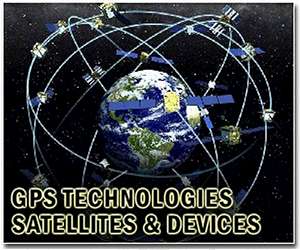Orolia launches the world’s first Galileo enabled PLB
Global leader in emergency readiness and response, Orolia, is pleased to announce that its McMurdo FastFind 220 and Kannad SafeLink Solo Personal Location Beacons now operate with the Galileo GNSS system.
Continuing Orolia’s innovation and leadership role in Safety Electronics, the PLBs have been upgraded to include Galileo Global Navigation Satellite System (GNSS), the European Union’s global satellite constellation.
These are the world’s first PLBs utilising the Galileo satellites’ capabilities and are the first of a series of new solutions coming from the EU-funded Helios project, led by Orolia, which has been set up to leverage the power of the new satellite system.
These multi-constellation receivers work with a wider range of satellites, offering increased global coverage and supporting accelerated rescue missions.
Location detection is enhanced and can be more precise due to the beacons receiving coordinates from the Galileo satellite network in addition to the tried and tested GPS network. Signals can even be detected in high sided locations, such as canyons.
“We are thrilled to be launching our upgraded PLBs in the European and US markets,” said Chris Loizou, Vice President of Maritime at Orolia.
“The combination of both Galileo and GPS GNSS capability means that our customers will benefit from coverage that spans from the North to the South Pole. We work tirelessly to push the boundaries of product innovation and, ultimately, to give people the best chance of being rescued in an emergency situation.”
The McMurdo FastFind and Kannad SafeLink PLBs are part of Orolia’s comprehensive search and rescue ecosystem and join the McMurdo SmartFind G8 and Kannad SafePro series EPIRBs as the first Galileo capable rescue beacons.
As the world’s only provider of an end-to-end search and rescue ecosystem – including distress beacons, satellite ground stations, mission control and rescue coordination systems, and rescue response products – Orolia’s McMurdo brand uniquely builds, integrates and tests products as part of a live search and rescue system.
This ensures greater cohesion between distress signal transmission and reception so that beacon owners can feel confident that their signals will get to search and rescue authorities quickly.
Related Links
Orolia Maritime
GPS Applications, Technology and Suppliers
|
We need your help. The SpaceDaily news network continues to grow but revenues have never been harder to maintain. With the rise of Ad Blockers, and Facebook – our traditional revenue sources via quality network advertising continues to decline. And unlike so many other news sites, we don’t have a paywall – with those annoying usernames and passwords. Our news coverage takes time and effort to publish 365 days a year. If you find our news sites informative and useful then please consider becoming a regular supporter or for now make a one off contribution. |
||
|
SpaceDaily Contributor $5 Billed Once credit card or paypal |
SpaceDaily Monthly Supporter $5 Billed Monthly paypal only |
|

![]()
Angry Norway says Russia jamming GPS signals again
Oslo (AFP) Feb 11, 2019
Norway’s foreign intelligence unit on Monday expressed renewed concerns that its GPS signals in the country’s Far North were being jammed, as Oslo again blamed Russia for the “unacceptable” acts.
In its annual national risk assessment report, the intelligence service said that in repeated incidents since 2017, GPS signals have been blocked from Russian territory in Norwegian regions near the border with Russia.
The jamming events have often coincided with military exercises on Norwegian soil, su … read more
